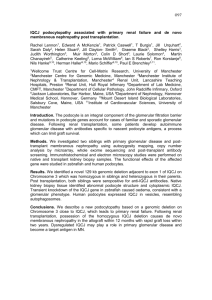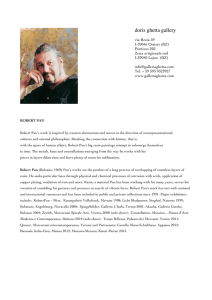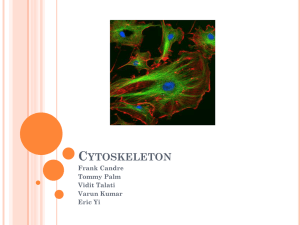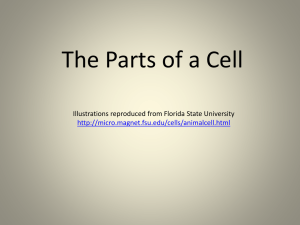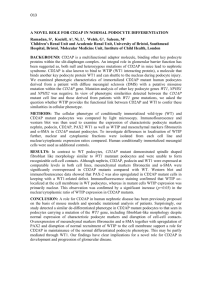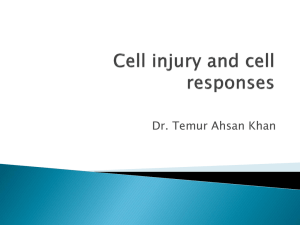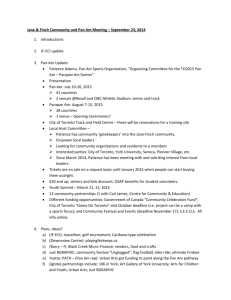Puromycin aminonucleoside induces nuclear translocation of
advertisement
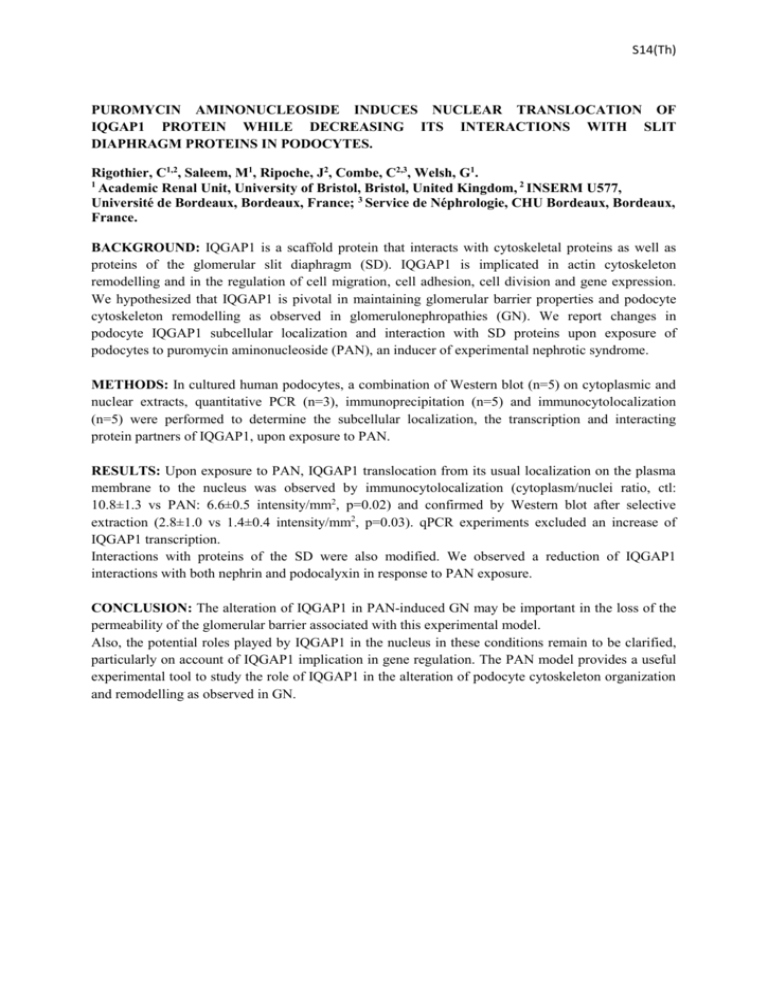
S14(Th) PUROMYCIN AMINONUCLEOSIDE INDUCES NUCLEAR TRANSLOCATION OF IQGAP1 PROTEIN WHILE DECREASING ITS INTERACTIONS WITH SLIT DIAPHRAGM PROTEINS IN PODOCYTES. Rigothier, C1,2, Saleem, M1, Ripoche, J2, Combe, C2,3, Welsh, G1. 1 Academic Renal Unit, University of Bristol, Bristol, United Kingdom, 2 INSERM U577, Université de Bordeaux, Bordeaux, France; 3 Service de Néphrologie, CHU Bordeaux, Bordeaux, France. BACKGROUND: IQGAP1 is a scaffold protein that interacts with cytoskeletal proteins as well as proteins of the glomerular slit diaphragm (SD). IQGAP1 is implicated in actin cytoskeleton remodelling and in the regulation of cell migration, cell adhesion, cell division and gene expression. We hypothesized that IQGAP1 is pivotal in maintaining glomerular barrier properties and podocyte cytoskeleton remodelling as observed in glomerulonephropathies (GN). We report changes in podocyte IQGAP1 subcellular localization and interaction with SD proteins upon exposure of podocytes to puromycin aminonucleoside (PAN), an inducer of experimental nephrotic syndrome. METHODS: In cultured human podocytes, a combination of Western blot (n=5) on cytoplasmic and nuclear extracts, quantitative PCR (n=3), immunoprecipitation (n=5) and immunocytolocalization (n=5) were performed to determine the subcellular localization, the transcription and interacting protein partners of IQGAP1, upon exposure to PAN. RESULTS: Upon exposure to PAN, IQGAP1 translocation from its usual localization on the plasma membrane to the nucleus was observed by immunocytolocalization (cytoplasm/nuclei ratio, ctl: 10.8±1.3 vs PAN: 6.6±0.5 intensity/mm2, p=0.02) and confirmed by Western blot after selective extraction (2.8±1.0 vs 1.4±0.4 intensity/mm2, p=0.03). qPCR experiments excluded an increase of IQGAP1 transcription. Interactions with proteins of the SD were also modified. We observed a reduction of IQGAP1 interactions with both nephrin and podocalyxin in response to PAN exposure. CONCLUSION: The alteration of IQGAP1 in PAN-induced GN may be important in the loss of the permeability of the glomerular barrier associated with this experimental model. Also, the potential roles played by IQGAP1 in the nucleus in these conditions remain to be clarified, particularly on account of IQGAP1 implication in gene regulation. The PAN model provides a useful experimental tool to study the role of IQGAP1 in the alteration of podocyte cytoskeleton organization and remodelling as observed in GN.
